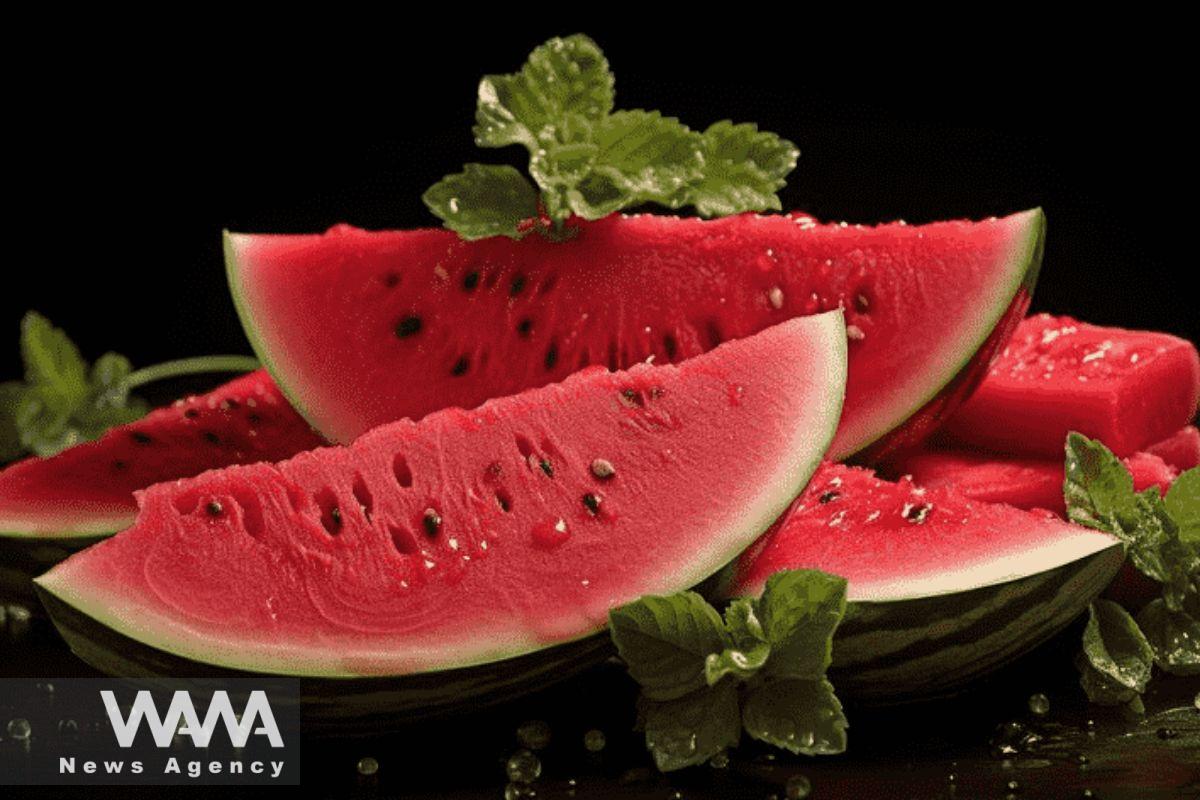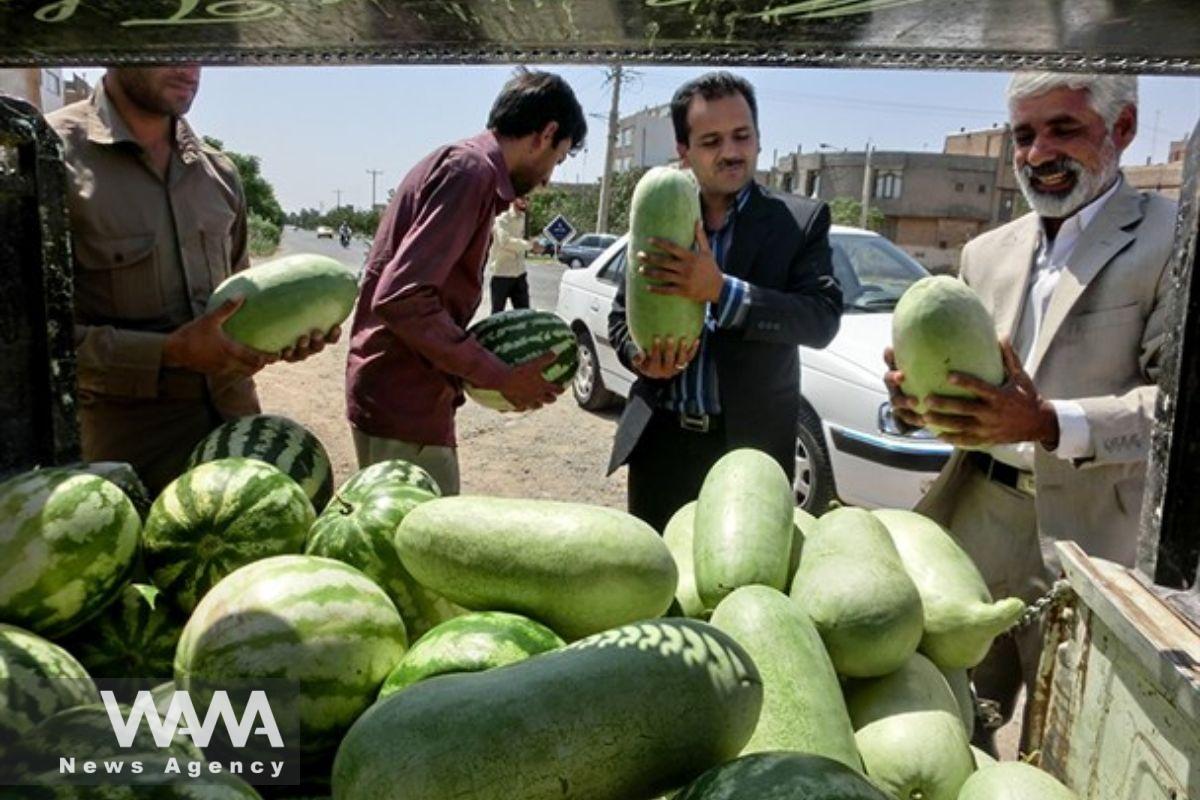Does Iranian Watermelon Contain Nitrate?
WANA (May 07) – Yesterday, a video went viral on social media in which a Russian Duma member questioned the safety of Iranian watermelons. In the video, filmed at a fruit market, the MP holds a watermelon and tells people: “Don’t buy Iranian watermelon, buy Dagestani watermelon!”
The video features a handheld device, which he claims is used to measure nitrate levels or fruit quality. He alleges that Iranian watermelons contain five times more nitrate than those from Dagestan or other regions of Russia and claims this makes them carcinogenic.
Response from Iran’s Ministry of Agriculture
Hossein Asghari, an official at Iran’s Ministry of Agriculture, responded: “Russia has some of the strictest standards when it comes to nitrate residue, and Iranian agricultural products are produced and exported according to those very standards.”

He added that the permitted nitrate level in watermelon — both in Iran and in Russia — is 60 milligrams per kilogram, and noted: “It’s not even clear whether the watermelon tested in the video was imported from Iran, so the entire premise is questionable.”
Asghari also stressed: “Due to low domestic production, Russia imports watermelons from various countries. Moreover, nitrate testing should be conducted on the edible part of the fruit, not the rind. But in the video, the measurement was taken from the peel.”
He continued: “According to a study by the Soil and Water Research Institute of Iran, the average nitrate concentration in domestically grown watermelons is less than 10 milligrams per kilogram. This conclusion is based on 433 samples taken from Iran’s major watermelon-producing provinces.”

People are buying Iranian watermelons. Social media/ WANA News Agency
Scientific Perspective from a Research Doctor
Mohammad Kazem Attari, a physician and researcher in Washington, commented on the scientific aspects of the matter: “Nitrate alone is not carcinogenic. It only becomes potentially dangerous when it reacts with amine compounds to form nitrosamines, and it’s the nitrosamines that are carcinogenic.”
He also questioned the methodology seen in the video: “The accuracy of the device used in that video is debatable. Proper nitrate testing in fruit requires specialized laboratory equipment — results from a handheld device can’t be trusted.”
He added: “What was claimed and said to be carcinogenic can’t be considered scientific, for the reasons I’ve just explained.”












